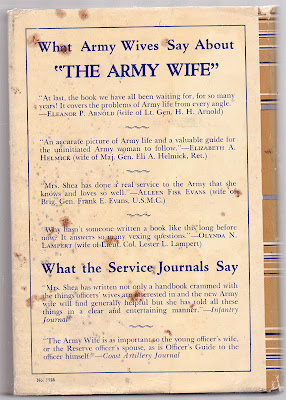for MOM
Here it is
April of 2012
and I have reglued the broken legs
on a wooden box I made for my mother
to decoratively store the hand weights
I gave on mothers day 1995
she passed near mothers day 2004
and I recovered the weight box
from her souvenirs
I made the box to just fit two
three pound weights
and gave it a hula theme
with a spring-wire doll
from the back window of one of my
high school cars
But in moving into the Odd Fellows
I broke the dolls legs at the shins
and the repair job was delayed
because of the challenge to me
of solving the method of clamping
a bobble doll
This year as mothers day approaches
I went for Gorilla glue and an imperfect
but certain repair
one that would dry quickly
I want to use the weights myself now
and a swift repair
even an untidy one
seemed the way to go
so as not to waste any more
precious time
The box has a wave motif
that occurred to me as I eyed
the moldings rack at Menards
and a copper scrap from my welding bin
in the garage at 517
was hammered with a chisel
to form the word
M-O-M
Mom is gone now
but sure not forgotten
She who played the organ
for a few years
at the Congregational church
in the 1940s;
who did a keyboard gig
at the Braves stadium
back in the day;
who formed a dance band
as a 13 year old in Sun Prairie WI
........& Many Etcs.
Her great-grand-daughter
Ruth Kari of Wasilla Alaska
daily wears her ankle bracelet
given Mom by my dad in 1931.
.................................
The 10 Best First Lines
in Fiction
(Our
Guide to the greatest lines of novel in the English language from Jane Austen
to James Joyce—The Guardian)
James Joyce
Ulysses
(1922)
“Stately, plump Buck Mulligan
came from the stairhead, bearing a bowl of lather on which a mirror and a
razor lay crossed.” This is the classic third-person opening to the
20th-century novel that has shaped modern fiction, pro and anti, for
almost a hundred years. As a sentence, it is possibly outdone by the strange
and lyrical beginning of Joyce’s final and even more experimental novel,
Finnegans Wake: “riverrun, past Eve and Adam’s, from swerve of shore to bend of
bay, brings us by a commodius vicus of recirculation back to Howth Castle and
Environs.”
Jane Austen
Pride
and Prejudice (1813)
“It is a truth universally
acknowledged, that a single man in possession of a good fortune, must be in
want of a wife.” The one everyone knows (and quotes). Parodied, spoofed, and
misremembered, Austen’s celebrated zinger remains the archetypal First Line for
an archetypal tale. Only Dickens comes close, with the beginning of A Tale of
Two Cities: “It was the best of times, it was the worst of times, it was the
age of wisdom, it was the age of foolishness, it was the epoch of belief, it
was the epoch of incredulity, it was the season of Light etc…”
Charlotte Brontë
Jane Eyre
(1847)
“There was no possibility of
taking a walk that day.” The polar opposite to Austen and Dickens, this line
plunges the reader into the narrative, but in a low-key tone of disappointed
expectations that captures Jane Eyre’s dismal circumstances. Brontë nails
Jane’s hopeless prospects in 10 words. At the same time, the reader can hardly
resist turning the first page. There’s also the intriguing contrast in tone
with her sister Emily, who opens Wuthering
Heights
Mark Twain
The
Adventures of Huckleberry Finn (1884)
“You don’t know about me,
without you have read a book by the name of The Adventures of Tom Sawyer, but
that ain’t no matter. That book was made by a Mr. Mark Twain, and he told the
truth, mainly.” The influence of this opening reverberates throughout the 20th
century, and nowhere more so than in JD Salinger’s The Catcher in the Rye: “If
you really want to hear about it, the first thing you’ll probably want to know
is where I was born, and what my lousy childhood was like… and all that David
Copperfield kind of crap, but I don’t feel like going into it, if you want to
know the truth.”
PG Wodehouse
The Luck
of the Bodkins (1935)
“Into the face of the young man
who sat on the terrace of the Hotel Magnifique at Cannes there had crept a look
of furtive shame, the shifty, hangdog look which announces that an Englishman
is about to talk French.” A classic English comic opening, perfectly
constructed to deliver the joke in the final phrase, this virtuoso line also
illustrates its author’s uncanny ear for the music of English. Contrast the
haunting brevity of Daphne du Maurier in Rebecca, partly situated in the south
of France
Anthony Burgess
Earthly Powers
(1980)
“It was the afternoon of my
eighty-first birthday, and I was in bed with my catamite when Ali announced
that the archbishop had come to see me.” This is one of the supreme
show-off first-person openings. Burgess challenges the reader (and himself) to
step on to the roller coaster of a very tall tale (loosely based on the life of
Somerset Maugham). It is matched by Rose Macaulay’s famous opening to
The Towers of Trebizond: “‘Take my camel, dear,’ said my Aunt Dot, as she
climbed down from this animal on her return from High Mass.”
Dodie Smith
I Capture
the Castle (1948)
“I write this sitting in the
kitchen sink.” A brilliant beginning to a much-loved English classic, which
tells us almost all we need to know about the narrator Cassandra Mortmain.
Quirky and high-spirited, Dodie Smith’s novel is really an exercise in
nostalgia. Smith (subsequently famous for The Hundred and One Dalmatians) was
living in 1940s California
Sylvia Plath
The Bell
Jar (1963)
“It was a queer, sultry summer,
the summer they electrocuted the Rosenbergs , and
I didn’t know what I was doing in New
York
Donna Tartt
The
Secret History (1992)
“The snow in the mountains was
melting and Bunny had been dead for several weeks before we came to understand
the gravity of our situation.” In this spooky opening, Tartt plunges the reader
into the middle of a crime whose consequences will reverberate throughout the
ensuing pages. Like all the best beginnings, the sentence also tells us
something about the narrator, Richard Papen. He’s the outsider in a group of
worldly students at Hampden College in rural Vermont
Robert Louis Stevenson
“Squire Trelawnay, Dr Livesey,
and the rest of these gentlemen having asked me to write down the whole
particulars about Treasure Island, from the beginning to the end, keeping
nothing back but the bearings of the island, and that only because there is
still treasure not yet lifted, I take up my pen in the year of grace 17– and go
back to the time when my father kept the Admiral Benbow inn and the brown
old seaman with the sabre cut first took up his lodging under our roof.” Among
the most brilliant and enthralling opening lines in the English language.
[from: The
Guardian The Observer, Robert McCrum, Saturday, April 28, 2012]
Editor’s
Note: I’m sure
not everyone would agrees with these ten choices, still it’s a pleasure to
entertain them, recall some of these first lines or be introduced to others for
the very first time. Though I agree most with Joyce’s, Ulysses and Twain’s, Adventures
of Huckleberry Finn, I would add some favorite first lines of mine:
Herman Melville
Moby Dick
(1851)
“Call me Ishmael.”
Ernest Hemingway
The Old
Man and the Sea (1952)
“He was an old man who fished
alone in the Gulf Stream and he had gone
eighty-four days now without taking a fish.”
Vladimir Nabokov
Lolita
(1995)
“Light of my life, fire of my
loins.”
Ralph Ellison
Invisible
Man (1952)
“I am an invisible man.”
Charles Dickens
A Tale of
Two Cities (1859)
“It was the best of times, it
was the worst of times, it was the age of wisdom, it was the age of
foolishness, it was the epoch of belief, it was the epoch of incredulity, it
was the season of Light, it was the season of Darkness, it was the spring of hope,
it was the winter of despair.”
























